Prisoners Pardoned By Khamenei Summoned To Court: Attorney
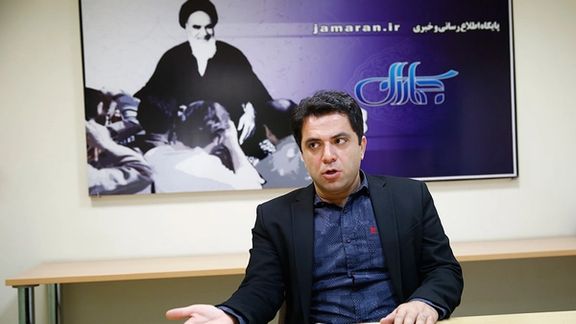
An Iranian lawyer says some protest detainees, who were earlier pardoned by Supreme Leader’s amnesty, have been summoned to face trials.

An Iranian lawyer says some protest detainees, who were earlier pardoned by Supreme Leader’s amnesty, have been summoned to face trials.
Ali Mojtahedzadeh, wrote in Etemad daily Saturday that not only the cases of many of the defendants, who were granted amnesty in February, are not closed but they face more judicial proceedings, and conviction.
“Unfortunately, it seems that a number of the middle ranks in the judicial system close their eyes to the amnesty and insist on pursuing these cases,” he added.
In early February, Supreme Leader Ali Khamenei agreed to pardon tens of thousands of prisoners, including many detained during recent protests.
A week later, Iran’s Attorney General Mohammad Javad Montazeri said Khamenei’s amnesty is not for everyone, adding that the people who created fake deaths and caused damages during the protests will not be pardoned and must be held accountable.
Several activists including Iranian human rights defender, Narges Mohammadi, slammed Khamenei’s prisoner amnesty as a sham to feign compassion to the Western world.
In a letter written to the UN Human Rights Council in Geneva from inside Tehran’s notorious Evin Prison, she said the amnesty reflects “politics of the Islamic Republic [which] is based on lies”.
Mohammadi also added that she is ready to testify against the authorities regarding widespread torture, harassment and abuse of prisoners.
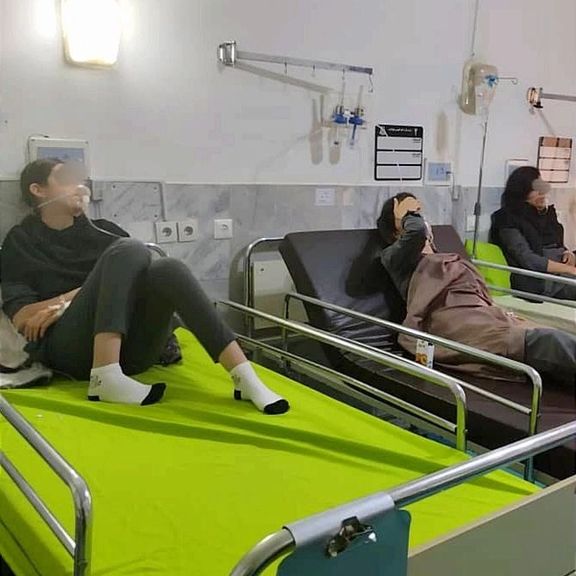
Human Right organizations report that suspected gas poisoning in Iran’s schools continued on Saturday with with 12 schools targeted and several schoolgirls hospitalized.
The Twitter account of Hengaw, which is an Independent rights monitoring group following violations in Iran’s Kurdish regions, reported that two schools in the city of Naqadeh were attacked on Saturday.
Meanwhile, The Coordination Council of Iranian Teachers' Trade Associations reported a school in the city of Ardabil in the northwest was also attacked and a number of students were poisoned.
There are also reports of an attack with suspected poisonous gas on a school in Haftkal city of southern Khuzestan province. At least 20 students with symptoms of gas poisoning have been admitted to the hospitals of the city.
At least 130 elementary and high schools were targeted in the past Iranian year ending in March 20.
The attacks that started in November have continued without any apparent effort by the government to seriously pursue the perpetrators or explain to terrified parents and students what was happening in so many schools.
Many ordinary Iranians have been suspicious of involvement of the regime itself, or religious extremists protected by the regime, calling the attacks “state terrorism”.
The government has aired ‘confessions’ of those allegedly responsible for the attacks as a man and his daughter forced to speak to national TV. The broadcast has all the trademarks of the regime’s forced confessions.
Local media has been asking the government about its total silence on any ongoing investigation.
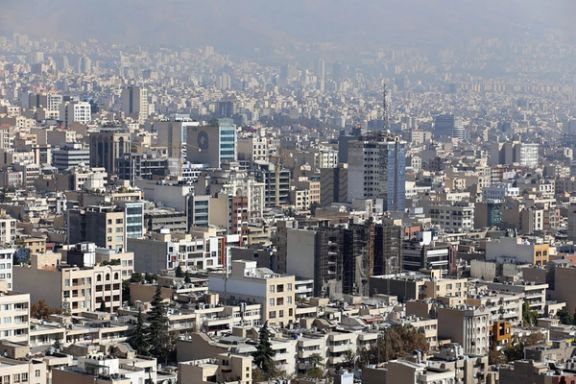
An economic daily says housing prices and rents in Tehran have jumped in the past three months by at least "40% compared to the previous quarter.
Donyaye Eghtesad (World of Economy) said in a report on Saturday that in the first weeks of Iranian new year (starting March 21), the number of newly built units offered for sale increased slightly, but the housing market transactions did not return to normal.
The daily also added that "the proposed prices are much higher than the expectation of the buyers".
Meanwhile, Jam-e Jam daily, which is owned by Iran's state broadcaster, reported that "the government has lost the ability to monitor the chaotic housing market."
"In less than two and a half months, the relocation of tenants will reach its peak, but the plans of the government and parliament to control the rental market have failed, with many tenants more worried about the unreasonable increase in prices," stressed Jam-e Jam.
In the meantime, Saeed Lotfi, a member of the board of directors of the Tehran Real Estate Consultants Union noted that “the government presents plans that are not based on expertise.”
Rents and home prices have climbed as much as inflation and the value of the US dollar have risen in recent months, reaching a level that an ordinary worker must hold two or even three jobs just to afford basic housing. Workers make between $100-150 a month, calculated by the current rate of the dollar which is 510,000 rials.
Food prices have increased between 70-100 percent in the past 12 months on top of high inflation in the previous year.
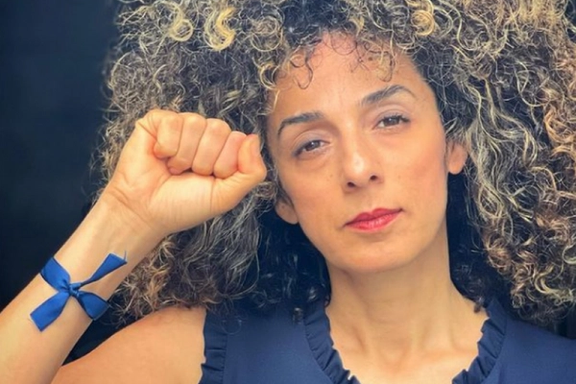
A federal court in New York has sentenced Niloufar Bahadorifar, an Iranian-American woman, who had pleaded guilty in a plot to kidnap opposition figure Masih Alinejad, to four years in prison.
Bahadorifar, had also confessed to conspiring to break US economic sanctions on the Islamic Republic by helping to provide money to a private investigator, who was tasked with monitoring Alinejad.
During the court session on Friday, Bahadorifar apologized to Alinejad calling her “a hero to all Iranians.” However, according to Alinejad, the judge realized the defendant was trying to abuse all Iranian women to show herself as a "victim of the Islamic Republic and the patriarchal system".
“Niloufar Bahadorifar willfully violated sanctions and knowingly provided financial support to Iranian intelligence assets, who in turn were engaged in a plot to kidnap an Iranian human rights activist living in the United States whom the Iranian government has sought to silence for years,” said US Attorney Damian Williams.
Alinejad, who campaigns against mandatory hijab and other rights issues was the target of an international kidnapping plot orchestrated by Iran’s intelligence network in 2021. She has a considerable following in Iran especially among women with 8.8 million followers on Instagram and 721,000 on Twitter.
US authorities charged an Iranian intelligence agent and some others with attempting to abduct Alinejad and take her back to Iran, but the regime in Tehran denies the charge and the four defendants, who all reside in Iran, have never stood trial.
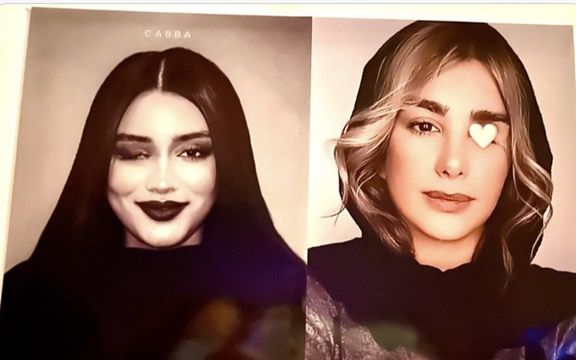
Hollywood star Angelina Jolie has expressed solidarity with dozens of Iranians who lost their eyes to police gunfire during recent antigovernment protests.
The American actress and director published pictures of Elahe Tavakolian and Zanyar Tondro, two young protesters who were shot in the eye during nationwide protests in Iran, on her Instagram page on Friday, saying “You aimed at my eyes, but my heart is still beating.”
Jolie further added in the caption that “Thinking of the young Iranians who have suffered eye injuries protesting the killing of Mahsa Amini, like Elahe Tavakolian and Zanyar Tondro. Many survivors have lost sight in one or both eyes. It’s a reminder of the price young Iranians are paying in their struggle for rights and freedoms.”
The Iranian regime used overwhelming force against protesters demanding secular democracy, killing more than 500, injuring thousands and jailing more than 20,000 mainly young protesters.
Earlier, Iranians launched a Twitter storm in support of Tondro, an 18-year-old man who along with his father, left Iran for treatment in Europe in the past weeks, but after their boat capsized, he was arrested by the Turkish police and taken to a refugee camp in the southwestern city of Mugla.
Elahe Tavakolian, a PhD student lost her eye to shotgun pellets fired at protesters by regime security forces.
Many protesters have been shot in the face and have lost one or both eyes during the protests that are still underway after more than six months.
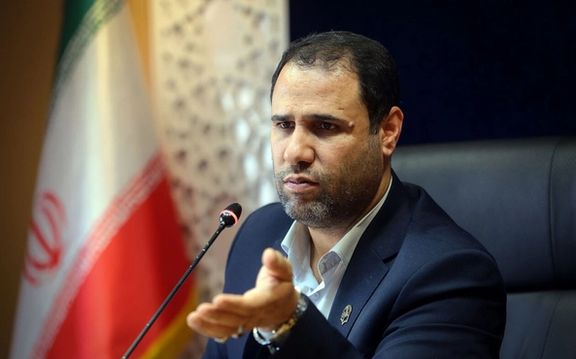
Iran's acting education minister Reza-Morad Sahraei, a life-long Basij operator, has threatened protesting university students and professors with expulsion.
In an audio recording of Sahraei’s meeting at Farhangian University, a public teacher training university where he currently serves as rector, Sharaei says this university is more important than the Revolutionary Guard's universities in Iran and everyone who speaks out against the regime will be identified and expelled.
He said "the red line is the existence of the regime," and anyone who crosses it would not have a place in the university. Anyone who took part in the recent protests, even minimally, will be identified in the near future and will be expelled, he said in the leaked audio. “Professors who would not move in the framework set by the regime will not have a place in this university,” he said, adding, “Record this and tell everyone about it.”
"The regime wants to train forces for itself in Farhangian University, and when someone does not accept the system, they do not belong here," he claimed.
The interim minister has not yet been approved in his post, but his appointment seems in line with President Ebrahim Raisi’s policy of further crackdown on dissident students.
Sahrai, who is already under aspersions about his former position as a tenured professor at the Allameh Tabataba'i University, faces numerous controversies about his academic credentials. He is one of those people who were crowned as professors at Iran’s high-ranking universities thanks to links to the regime’s inner circles.
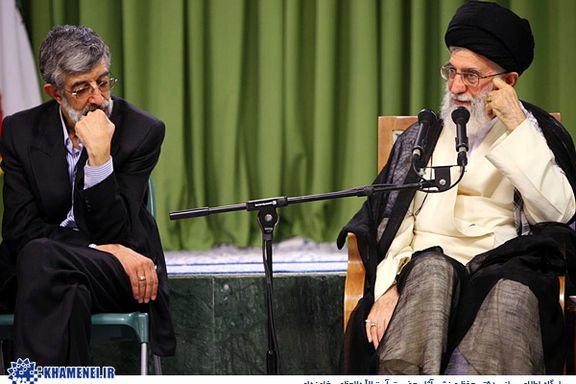
He is closely connected to former parliament speaker Gholam-Ali Haddad-Adel and served as his right-hand man at the Saadi Foundation, a “cultural center” that is tasked with promoting Persian language among non-Persian speakers. Sahraei is the man who was influential in assigning many people as the Islamic Republic’s cultural attachés in several embassies under the guise of Persian teachers.
Although Sahraei’s resume may portray him as a true academic, he is really a regime agent in camouflage of a university professor. He reportedly holds a doctorate in linguistics from Allameh Tabatabai University and is a full professor there, but several graduate students who were forced to work on their theses with him as their advisor or supervisor told Iran International that he never helped them in in their academic endeavors and only showed up at the defense presentation sessions to get the credit.
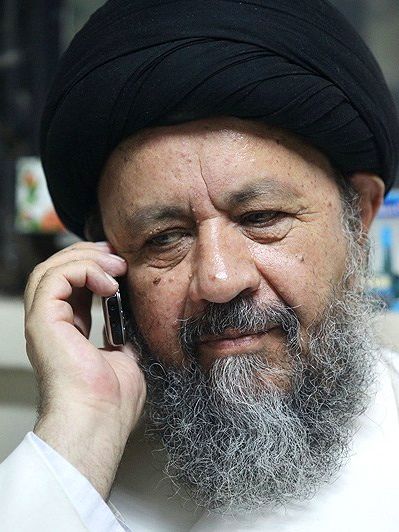
Sahraei was also the man in charge of implementing policies of Sadreddin Shariati, the controversial head of Allameh Tabatabai University who embarked on strict sex segregation at the university in early 2010s. According to information obtained by Iran International, Sahraei is also mired in numerous cases of plagiarism, including his article about “morphological paradoxes.”
Serving as a loyal regime operator for many years, Sahraei is appointed as the new education minister to carry out harsher crackdown on students who have revolted against the Islamic Republic or voiced support for the popular uprising ignited in September 2022 following the death in custody of 22-year-old Mahsa Amini.
Earlier in the month, the ministry of higher education said institutions under its coverage will no longer offer educational and other services to students who do not abide by hijab rules. “All universities and higher education institutions under the coverage of the ministry of sciences, research and technology will not be obliged to offer educational, welfare and other services to the few students who do not abide by the laws and regulations of the universities in this regard,” the ministry said in a statement April 3.